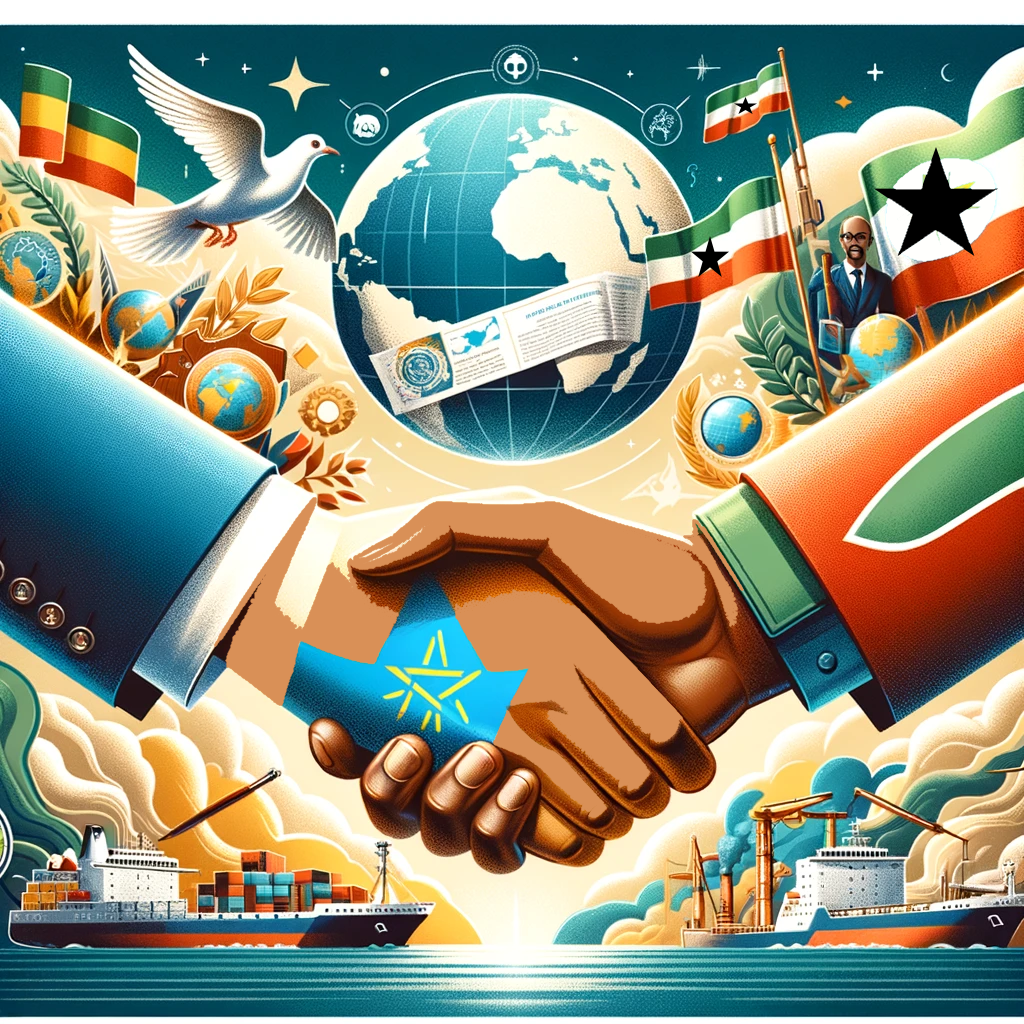Somaliland’s Unrecognised Status and Global Stance
Before we dig deep into Somaliland's adversaries, it's important to understand the global stance on Somaliland. Somaliland is an unrecognised country, but it’s not prohibited from becoming a recognised state. Unlike northern Cyprus, there is no UN resolution preventing countries from recognising Somaliland. As many of you know, Somaliland was already recognised by 35 countries in 1960. The current global position of non-recognition is largely due to other pressing global priorities rather than firm opposition to Somaliland’s statehood.
The challenge for Somaliland has always been to shift the world’s focus toward the political and economic benefits of its recognition and to make a compelling case for it. Most countries maintain a neutral stance, essentially saying, "We don’t recognise Somaliland, yet" However, there are notable exceptions—countries that actively oppose Somaliland’s recognition for various reasons.
China’s Opposition: The Taiwan Connection
China’s opposition to Somaliland is primarily driven by Somaliland’s relationship with Taiwan. When Somaliland opened an office for Taiwan and maintained this relationship, it drew the ire of China, which views Taiwan as a breakaway province. Any engagement with Taiwan by unrecognised states is seen as a threat to China’s "One China" policy, leading to a more adversarial stance against Somaliland.
While some Western observers might mistakenly categorise Somaliland as a secessionist entity and draw parallels to Taiwan, the reality is that Somaliland’s situation is distinct. However, from China’s perspective, any move that legitimises Taiwan, even indirectly, is unacceptable. This places China in a more actively hostile position against Somaliland, contrasting with the general international norm of neutrality or passive non-recognition.
Djibouti’s Opposition: Geopolitics and Economic Interests
Djibouti’s opposition to Somaliland is deeply rooted in both geopolitical and economic factors. Djibouti has established itself as a major regional hub, particularly through its port facilities that serve as Ethiopia’s main access to the sea. The development of Somaliland’s Berbera port as an alternative trade route for Ethiopia threatens to diminish Djibouti’s economic leverage and monopolistic control over Ethiopian trade.
Additionally, Djibouti’s foreign policy is heavily influenced by its economic dependence on China, as evidenced by its rejection of a visa for a UK parliamentarian supportive of Somaliland. This suggests that Djibouti’s stance against Somaliland is not entirely self-directed but also shaped by its relationship with China (which is previously covered)
Egypt’s Opposition: A Proxy Battle Over the Nile
Egypt’s opposition to Somaliland is more about its rivalry with Ethiopia than Somaliland itself. Egypt has long viewed Ethiopia as a regional rival, a situation exacerbated by the construction of the Grand Ethiopian Renaissance Dam (GERD) on the Nile River, which Egypt sees as a direct threat to its water security.
Given this context, Egypt opposes anything that could strengthen Ethiopia’s position, including its agreements with Somaliland. While Egypt has its own history of attempted unions, like that with Syria in the late 1950s, the pressing geopolitical realities concerning the Nile take precedence. For Egypt, Somaliland’s recognition would represent a win for Ethiopia, and thus, Egypt’s stance has become more oppositional since the MoU was signed.
Turkey’s Opposition: A Quest for Regional Dominance
Turkey’s opposition to Somaliland is driven by its desire to maintain and expand its regional influence. Over the past decade, Turkey has heavily invested in Somalia, seeing it as a key part of its strategic ambitions in the Horn of Africa. This includes the establishment of its largest military base outside of Turkey and significant aid contributions, all aimed at solidifying its control over the region. In Turkey’s view, Somaliland is not an independent entity but a part of Somalia under its sphere of influence. Therefore, when Turkey speaks of respecting Somalia’s territorial integrity in relation to Somaliland, it’s about protecting its own interests and perceived ownership over the region.
Unlike other countries that maintain a stance of delayed or conditional recognition of Somaliland, Turkey’s position is more rigid and adversarial. Turkey actively works to prevent Somaliland’s recognition. By invoking territorial integrity, Turkey seeks to undermine Somaliland’s legitimate reality and historical status. This is not about maintaining peace or international order; it’s about suppressing Somaliland’s right to recognition to safeguard Turkey’s own ambitions in the region.
For Somaliland, this situation presents a unique challenge. Unlike with other countries where diplomatic negotiation might be possible, Turkey’s entrenched stance leaves little room for compromise. Somaliland must therefore consider taking a more assertive approach, including reassessing the presence of Turkish offices in Hargeisa. By doing so, Somaliland would not only defend its sovereignty but also send a clear message to the international community: Somaliland's territorial integrity was established before Somalia's, and it is unacceptable to invoke one while disregarding the other, especially when such stances are rooted in a neo-colonial mindset.
